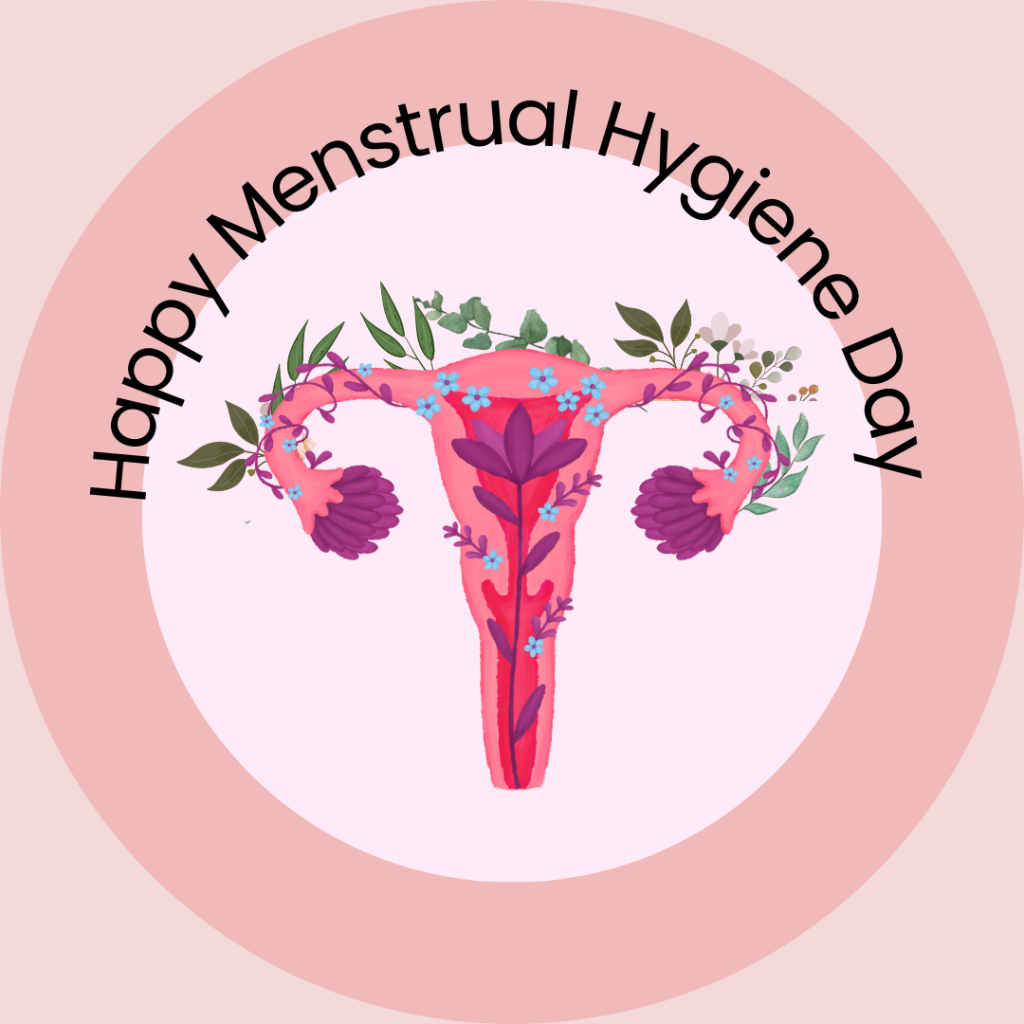In this article, we’ll discuss the impact of menstrual disorders on health, the situation in Kenya, and the importance of menstrual hygiene for reproductive health. We’ll also celebrate World Menstrual Hygiene Day, which aims to raise awareness about menstrual health and hygiene.

A. Menstrual Disorders and Their Impact on Health
Menstrual disorders can significantly affect women’s health and well-being. Let’s explore some common disorders and their impact:
1. Dysmenorrhea
Dysmenorrhea, or painful menstruation, can cause severe cramps that disrupt daily activities. It affects up to 90% of women at some point in their lives.
2. Menorrhagia
Menorrhagia, or heavy menstrual bleeding, can lead to anemia, fatigue, and other health complications.
3. Amenorrhea
Amenorrhea, or the absence of menstruation, can result from hormonal imbalances or other health issues. It’s essential to identify the cause and seek treatment.
B. Case Study: Kenya

In Kenya, organizations like Maji na Ufanisi and PadMad are working tirelessly to improve menstrual hygiene and health.
1. Maji na Ufanisi’s Reusable Sanitary Pads Initiative
In conjunction with PadMad, Maji na Ufanisi distributes reusable sanitary pads to needy women and girls. These eco-friendly and cost-effective pads empower women to maintain their menstrual hygiene.
2. Education and Awareness Programs
These organizations also run education and awareness programs to destigmatize menstruation and promote menstrual hygiene practices.
Also read: Empowering Women on World Menstrual Hygiene Day: Awareness, Education, and Breaking Taboo
b. Physical and Emotional Well-being During Menstruation
A healthy menstrual cycle is essential for women’s physical and emotional well-being. Here are some tips to improve well-being during menstruation:
1. Exercise
Engaging in regular exercise can help alleviate menstrual pain and boost mood.
2. Healthy Diet
A balanced diet rich in iron, vitamins, and minerals supports overall health and reduces menstrual discomfort.
3. Stress Management
Managing stress through relaxation techniques like yoga, meditation, or mindfulness can help alleviate mood swings and emotional distress.
c. Menstrual Hygiene and its Relation to Reproductive Health

Maintaining menstrual hygiene is crucial for reproductive health. Here’s why:
1. Infection Prevention
Poor menstrual hygiene can lead to infections, such as bacterial vaginosis, yeast infections, or toxic shock syndrome, which may affect fertility. These infections can cause inflammation and scarring of the reproductive organs, making it difficult for women to conceive.
2. Early Detection of Health Issues
Regularly monitoring menstrual cycles can help detect potential health issues, such as hormonal imbalances, polycystic ovary syndrome (PCOS), endometriosis, or other gynecological conditions. Early detection and treatment of these issues can improve fertility and overall reproductive health.
3. Mental Health
Addressing menstrual hygiene and health reduces stress and anxiety surrounding menstruation, promoting overall mental well-being. Poor mental health can have adverse effects on hormonal balance, which in turn can impact fertility and reproductive health.
4. Maintaining Hormonal Balance
Proper menstrual hygiene practices can help maintain hormonal balance in the body. Hormonal imbalances can lead to irregular periods, which may affect ovulation and fertility. Ensuring good menstrual hygiene can contribute to a regular menstrual cycle and better reproductive health.
5. Improving Sexual Health
Good menstrual hygiene practices contribute to better sexual health by reducing the risk of sexually transmitted infections (STIs). STIs can have severe consequences on reproductive health, potentially leading to infertility or complications during pregnancy.
6. Creating a Conducive Environment for the Conception
Also read: Incorporating Menstrual Education in School Curriculums
Practicing good menstrual hygiene can help create a conducive environment for conception by ensuring that the reproductive system remains healthy and free from infections. A healthy reproductive system increases the chances of successful conception and a healthy pregnancy.
Women can take an essential step towards safeguarding their reproductive health and overall well-being by prioritizing menstrual hygiene.
1. Infection Prevention
Poor menstrual hygiene can lead to infections, such as bacterial vaginosis, yeast infections, or toxic shock syndrome, which may affect fertility. These infections can cause inflammation and scarring of the reproductive organs, making it difficult for women to conceive.
2. Early Detection of Health Issues
Regularly monitoring menstrual cycles can help detect potential health issues, such as hormonal imbalances, polycystic ovary syndrome (PCOS), endometriosis, or other gynecological conditions. Early detection and treatment of these issues can improve fertility and overall reproductive health.
3. Mental Health
Addressing menstrual hygiene and health reduces stress and anxiety surrounding menstruation, promoting overall mental well-being. Poor mental health can have adverse effects on hormonal balance, which in turn can impact fertility and reproductive health.
4. Maintaining Hormonal Balance
Proper menstrual hygiene practices can help maintain hormonal balance in the body. Hormonal imbalances can lead to irregular periods, which may affect ovulation and fertility. Ensuring good menstrual hygiene can contribute to a regular menstrual cycle and better reproductive health.
5. Improving Sexual Health
Good menstrual hygiene practices contribute to better sexual health by reducing the risk of sexually transmitted infections (STIs). STIs can have severe consequences on reproductive health, potentially leading to infertility or complications during pregnancy.
6. Creating a Conducive Environment for the Conception
Practicing good menstrual hygiene can help create a conducive environment for conception by ensuring the reproductive system remains healthy and free from infections. A healthy reproductive system increases the chances of successful conception and a healthy pregnancy.
Women can take an essential step towards safeguarding their reproductive health and overall well-being by prioritizing menstrual hygiene.
Also read: Breaking Stigma: Discover the World of Menstrual Hygiene
Celebrating World Menstrual Hygiene Day

World Menstrual Hygiene Day, observed on May 28th, aims to break the silence around menstruation, raise awareness, and promote good menstrual hygiene practices.
1. Importance of World Menstrual Hygiene Day
This international day highlights the importance of menstrual hygiene management and its impact on education, health, and gender equality.
2. How to Get Involved
Support organizations like Maji na Ufanisi and PadMad, share stories on social media using the hashtags #WorldMenstrualHygieneDay and #NoMoreLimits, and engage in conversations about menstrual health.
Conclusion
Menstrual hygiene and health are critical aspects of women’s overall well-being. By supporting organizations like Maji na Ufanisi and PadMad, spreading awareness, and engaging in conversations, we can create a world where menstruation is no longer a barrier to education, health, and gender equality.
Let’s join hands on World Menstrual Hygiene Day to make a difference and create a brighter future for all.
FAQs
1. What is World Menstrual Hygiene Day?
World Menstrual Hygiene Day, observed on May 28th, is an international day dedicated to raising awareness about menstrual hygiene management and breaking the stigma surrounding menstruation.
2. Why is menstrual hygiene important?
Maintaining menstrual hygiene is essential for preventing infections, detecting potential health issues, and promoting mental well-being.
3. How can I support menstrual hygiene initiatives?
You can support menstrual hygiene initiatives by donating to organizations like Maji na Ufanisi and PadMad, volunteering your time, or raising awareness on social media.
4. What can I do to improve my menstrual hygiene?
To improve your menstrual hygiene, use clean and safe menstrual products, change them regularly, maintain proper hygiene during menstruation, and monitor your menstrual cycle for any irregularities.
5. How can I help destigmatize menstruation?
To help destigmatize menstruation, engage in open conversations about menstrual health, educate yourself and others on the importance of menstrual hygiene, and support initiatives that promote menstrual health and hygiene.



